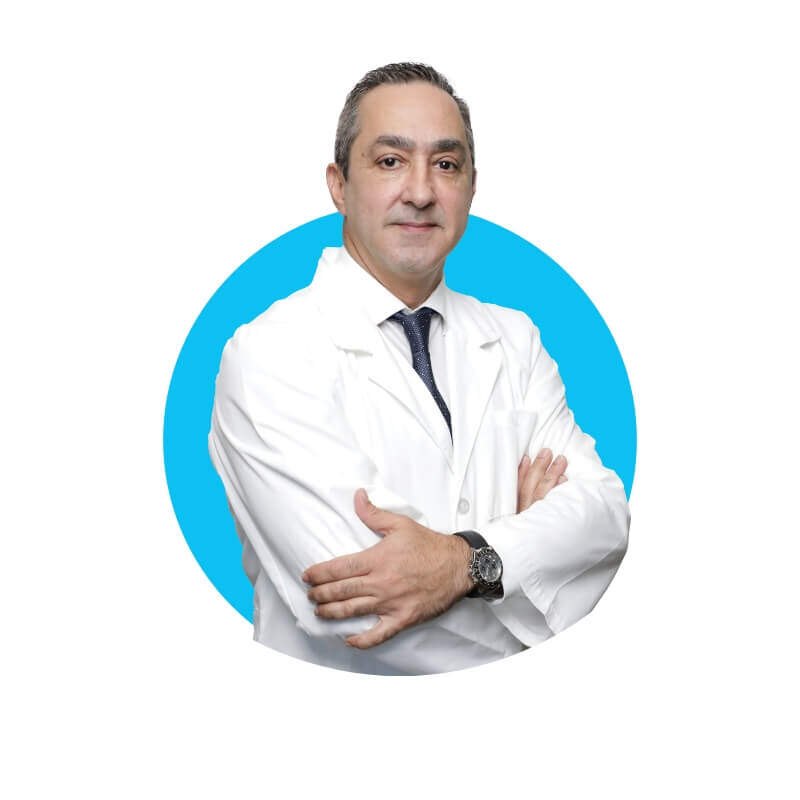Cystoscopy in Dubai, Abu Dhabi and Al Ain (To Check Bladder/Urethra)
Overview
Cystoscopy, or cystourethroscopy, is a procedure that enables your urologist to make a careful examination of the inside of your bladder and urethra. It is often used to identify obstructions in the bladder, diagnose tumors and look for any other abnormalities of the bladder and its lining.
Urologists perform a cystoscopy to determine the source of and occasionally treat urinary tract issues, including:
- frequent urinary tract infections (UTIs).
- Hematuria (noticing blood urine).
- Urinary incontinence.
- Urinary retention.
- Feeling pain or burning before, during, or after urination.
- Facing difficulties starting or stopping urination.
How to prepare for a cystoscopy?
- Before the procedure
If you have a urinary tract infection or a weak immune system, your doctor may prescribe antibiotics before and after the procedure. Additionally, you may be required to provide a urine sample before your cystoscopy to evaluate other health indicators. The lingering effects of general anesthesia may include exhaustion and dizziness, so make sure to arrange for your transportation home.
Also, consult your physician to determine whether you can continue using your regular medications, as certain medications can induce significant bleeding during the procedure.
- During the procedure
Your doctor will instruct you to use the restroom shortly before the cystoscopy and empty your bladder. Once you’ve changed into a surgical gown and are lying on your back, an anesthetic spray or gel will be used to numb your urethra. Although you will continue to experience some sensations, the gel will make the procedure less uncomfortable. The physician will lubricate the scope and navigate it carefully into the urethra, which may cause a burning sensation or pressure to urinate.
As the scope is inserted into your bladder, a sterile solution will be pumped to help your doctor inspect the inside of your bladder through the camera lens.
Your cystoscopy may be completed in less than five minutes if you are under local anesthetic, while sedation or general anesthesia may require 15 to 30 minutes.
- After the procedure
Cystoscopy is frequently performed as an outpatient procedure. Your recovery time will vary according to the type of sedative administered. Once your blood pressure, pulse, and respiration have stabilized and you have regained consciousness, you will be escorted to your hospital room or discharged to your home.
You will be instructed to drink plenty of fluids following the surgery to help cleanse your bladder. You may see some blood in your urine or experience a burning sensation when peeing for the first day or two following the cystoscopy.
If biopsies were performed as part of the procedure, the results usually are available within a few days, but specific testing on biopsy samples may take longer.
Is cystoscopy painful?
When performed under general anesthesia, cystoscopy is rarely painful. However, If you have been given local anesthesia, you may experience an irritating sensation similar to the urge to urinate or a tingling sensation while the tube is inserted or removed from the urethra.
What are the risks and complications of cystoscopy ?
Common complications may include experiencing irregular bleeding or developing a urinary tract infection. On the other hand, the cystoscope has a very low risk of injuring or rupturing any section of your urinary tract.
What is considered healthy in cystoscopy results?
The bladder wall should be clear of any edges or bumps, and the bladder itself should be average in size, shape, and placement, with no signs of blockage. The cystoscope can be used to extract a small sample of tissue if anything seems abnormal.
Book your appointment at Novomed today!
Our urologists have extensive experience treating a variety of urological and andrological disorders. They will be able to provide you with the utmost care and effective treatment!
If you have any inquiries about our services or want to book an appointment with one of our Urologists in Dubai or Al Ain, call us toll-free at 800 (NOVO) 6686 or click on the live chat icon at the bottom of the screen.





